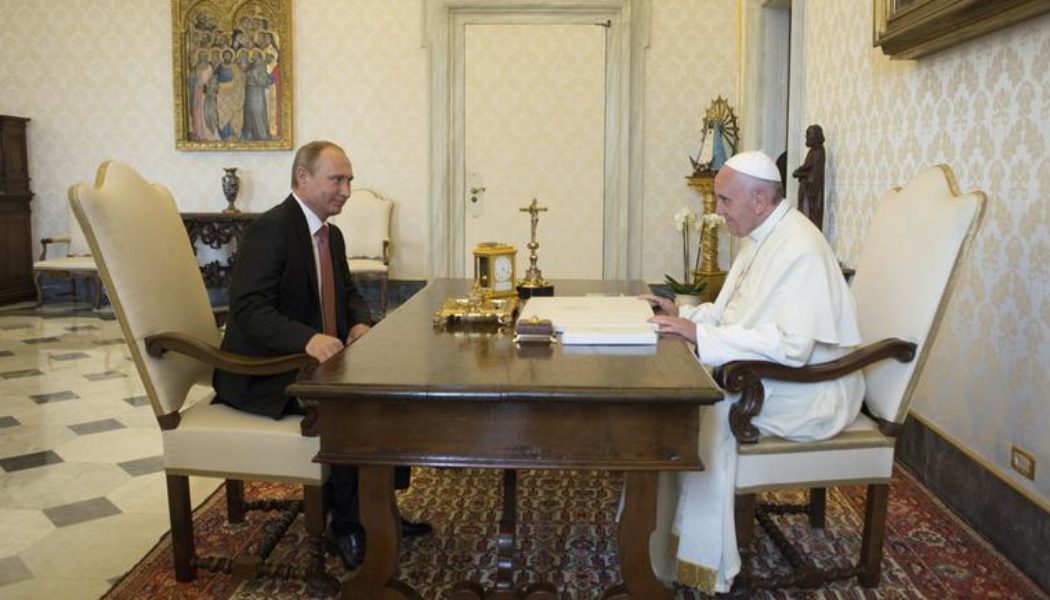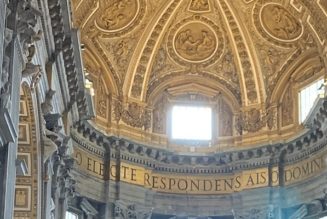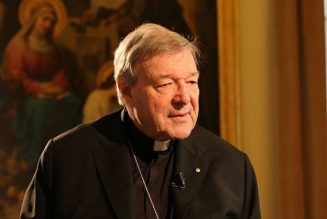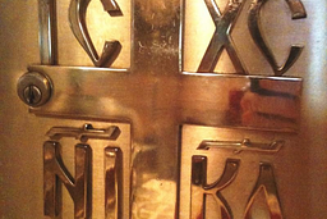
The Russian invasion of Ukraine has rapidly upended long-standing positions and relationships — and Vatican diplomacy is trying to keep up.
On Monday, Secretary of State Cardinal Pietro Parolin spoke of “the war unleashed by Russia against Ukraine.” He pronounced the tyranny that heretofore had no name at the Vatican: “Russia.”
It was a stunning reversal for Vatican diplomacy, which had steadfastly refused to call Russia an aggressor since the 2014 Russian invasion, occupation and annexation of Crimea. Even as late as the Sunday Angelus the day before Cardinal Parolin’s statement, Pope Francis did not name Russia as an aggressor.
While no one thinks that Pope Francis approves of Vladimir Putin’s aggression, he has prioritized ecumenical relations with the Russian Orthodox Church and its leader, Patriarch Kirill of Moscow. Patriarch Kirill has such a close and subservient relationship to Putin that Archbishop Borys Gudziak, the senior Ukrainian Catholic metropolitan in the United States, has spoken of Kirill as Putin’s “altar boy.” Given that close alliance, Kirill is only free to associate with the Vatican to the extent that Putin permits.
Indeed, this past Sunday, four days after the full-scale invasion, Kirill preached about Kyiv and Moscow “comprising the one space of the Russian Orthodox Church,” a direct echo of Putin’s justification for the invasion as defending a common “spiritual space.” Kirill sings, but Putin chooses the hymn.
The Price of a Meeting
The reserve of the Vatican on the 2014 annexation of Crimea was rewarded by Putin permitting Kirill to meet Pope Francis in Cuba in 2016, the first ever meeting between a pope and the Russian Orthodox patriarch. It was trumpeted by the Vatican as an ecumenical triumph of the first order, but it had been bought at a great price.
Indeed, Robert Mickens, an enthusiastic advocate of the most liberal interpretation of Pope Francis, excoriated the Holy Father’s Russia policy as a cynical abandonment: “Do the Pope and his Vatican aides really believe that appeasing Russian oligarchs and hierarchs is their best strategy in advancing the cause of Christian unity? And on which altar are they willing to sacrifice the Ukrainian people to do so?”
Another Meeting? Another Price?
Last December, the Russian Orthodox Church floated the possibility of a second Francis-Kirill meeting for 2022. Putin was dangling Kirill as the reward for Vatican silence on his planned invasion of Ukraine. That may have explained Vatican reticence to speak as frankly about Russian aggression as, for example, other priorities like climate change or immigration policy.
The dangled prize diminished rapidly in value over the last few days. Without a public renunciation of his support for Putin’s invasion, it is likely that Patriarch Kirill will become a diplomatic persona non grata for the rest of his life.
Rome Overtaken by Orthodoxy
What changed to prompt Cardinal Parolin’s Russia statement? Why the shift from what Mickens calls “appeasement”?
Simply put, the Vatican found itself being less vocal on Putin’s aggression than the relevant Orthodox patriarchs. Rome appeared to fear what Kirill thought more than his fellow Orthodox bishops did.
That embarrassment, if not quickly remedied, might have destroyed Vatican credibility in Europe for a generation. Hence Cardinal Parolin’s quick but modest declaration that Russia was responsible for unleashing war.
Moscow Isolates Itself
A little background in is order. The Patriarchate of Moscow views Ukraine as part of its “canonical territory,” meaning subject to its jurisdiction. Thus, Orthodox Patriarch Onuphrios of Kyiv is in communion with Kirill and subordinate to him.
In 2019, Ukrainian Orthodox who wanted an “autocephalous” Church, one independent of Moscow, erected their own patriarchate, headed by Patriarch Epiphanios. Ecumenical Patriarch Bartholomew of Constantinople recognized the new, autocephalous patriarchate. Kirill was furious and denounced the new patriarchate in Kyiv. So, too, did Putin.
Kirill thus broke communion with Bartholomew and refused communion with Epiphanios.
The Sin of Cain
After the invasion, Bartholomew denounced it in the most explicit terms, expressing “full sympathy to our brother, the Primate of the Church of Ukraine, His Beatitude Metropolitan Epiphanios of Kyiv.”
Ephiphanios also denounced the invasion.
Most remarkably, Onuphrius made the following statement on the day of the invasion, castigating Putin and breaking with Putin’s “altar boy,” even though Kirill is his superior:
“Defending the sovereignty and integrity of Ukraine, we appeal to the President of Russia and ask you to immediately stop the fratricidal war. The Ukrainian and Russian peoples came out of the Dnieper baptismal font, and the war between these peoples is a repetition of the sin of Cain, who killed his own brother out of envy. Such a war has no justification for either God or men.”
Pope Francis maintained his reserved approach from Thursday to Sunday, not speaking about Putin or Russia. But it was increasingly untenable to keep silent on the identities of Cain and Abel. How could Pope Francis be more reticent to speak forthrightly than Kirill’s own man in Kyiv or Bartholomew? How could the Vatican prioritize ecumenical relations with a collaborationist Kirill when the ecumenical patriarch himself was willing to speak plainly?
By Sunday, the utter impossibility of the Vatican’s position was clear. Cardinal Parolin abandoned it.
Embassy Visit and Mediation
It was not without a few fig leaves, though.
The strange visit of Pope Francis to the Russian Embassy to the Holy See was explained as a willingness to break protocol in pursuit of peace. Ambassadors are summoned to receive important messages, not the other way around.
George Weigel, whose contacts with the Ukrainian Greek Catholic Church are excellent, explained the real reason for the visit in an interview with Catholic World Report. Putin would not take a call from the Holy Father on a Vatican line due to paranoia about espionage. Thus, Francis had to go to the embassy to speak on a secure Russian line with Putin. The side effect of making the Pope appear the supplicant was seen as a bonus by Putin.
Cardinal Parolin implied that the Vatican’s reluctance to call out Putin’s aggression was in order to remain credible as a mediator. Vatican mediation, which reached a high point in 1978, with St. John Paul II’s mediation between Chile and Argentina over the Beagle Channel, has been rather ineffective lately, as it proved fruitless in Venezuela, undermining the local bishops and strengthening the Maduro regime. Nevertheless, Cardinal Parolin floated that implausibility.
“The Holy See, which in recent years has followed the events in Ukraine constantly, discreetly, and with great attention, offering its willingness to facilitate dialogue with Russia, is always ready to help the parties to resume that path,” the Vatican’s secretary of state said.
While Cardinal Parolin’s diplomats might have some credibility with Russia, eight years of “discretion” has left it with precious little credibility on the Ukrainian side. Diplomatic discretion has been received in Ukraine as cold silence, even indifference. At the meeting with Kirill in Cuba, the Vatican signed a joint declaration that undermined the identity of Ukrainian Catholics. The Ukrainian Catholic Church had to protest, as Mickens writes, being “sacrificed on the altar” of accommodating Moscow.
Ukrainians — both Orthodox and Catholic — will not permit that to happen again.
The invasion caused massive hemorrhaging in the Vatican’s Russia policy since 2014. Cardinal Parolin attempted to staunch the bleeding. He was wise to do so.
Join Our Telegram Group : Salvation & Prosperity








